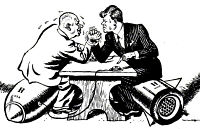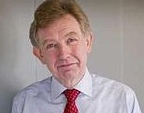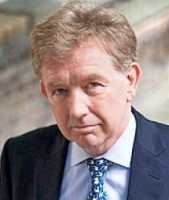Indexes - all Resources
The rise of toxic leaders in organisations. (2016)
“In.. two decades as an executive coach ... I’ve seen a disproportionate share of toxic leaders... Here are some things I’ve learned as a result of my experiences. Ray Williams, coaching practitioner International Coach Federation Blog, 25 Feb 2016. “…anecdotal and research evidence shows that one out of every five leaders is toxic, and (may be) closer to three out of every ten leaders. “In my last two ...
Written by: Williams, Ray.
Read moreHumble leaders get more commitment. (2016)
"Leaders viewed admitting mistakes, spotlighting follower strengths and modeling teachability as being ... powerful predictors of their own as well as the organization's growth. Ray Williams, executive coach/mentor and author LinkedIn post, 12 September 2016 New research finds that “leaders who are more critical of their own leadership style than their employees are have the greatest success.” It also sho...
Written by: Williams, Ray.
Read moreWhy we need more empathetic and compassionate leaders. (2016)
“Toxic leaders are creating toxic workplaces.” Ray Williams Psychology Today, 28 Aug 2016 "Leaders in business schools, organizations and politics are taught to lead with their heads and not with their hearts. Leaders are expected to be strategic, rational, tough, bottom-line business people who focus on results. Yet, recent research on successful leaders and the current turbulent economic and social times calls out for a diff...
Written by: Williams, Ray.
Read moreHow to bring calm to chaotic and toxic workplaces. (2016)
"Mindfulness can restore balance and calm to chaotic workplaces if embraced by leaders. Ray Williams, Wired for success Psychology Today, 3 Oct 2016. "Many of today’s organizations are chaotic if not outright toxic for employees and leaders alike. There are multiple reasons why chaotic workplaces are proliferating. With mega-mergers and globalization, some corporations are becoming vaster and impersonal, while simult...
Written by: Williams, Ray.
Read moreThinking differently about leadership: A critical history of leadership studies. (2016)
“…when leaders buy in to the concept that they can bring about massive change and transformation, it can lead to arrogance and narcissism.” Suze Wilson, Massey University New Zealand. Edward Elgar Publishing From a preview: “It's time for business to move away from an obsession with charismatic, transformational leaders and look for people who have a long-term, sustainable focus for organisations, … the focus on...
Written by: Wilson, S.
Read moreTaming power: ‘generative historical consciousness’. (2016)
Is the capacity for corruption inherent in the nature of power? A mechanism for taming power could be ‘Generative historical consciousness’. David. G. Winter, University of Michigan American Psychologist, Vol 71(3), 160-174. Power … has a dual nature. When tamed, it gives inspiration, hope, and energy. On the other hand, untamed power can bring oppression, aggression, and ultimately despair Is the capacity for ...
Written by: Winter, D. G.
Read more
A motivational model of leadership: predicting long-term management success from TAT measures of power motivation and responsibility. (1999)
"In an AT&T longitudinal study of managers, managerial success after sixteen years is predicted by “responsible power,” which is a combination of TAT-based (Thematic Apperception Test) measures of power motivation and responsibility. David G Winter, University of Michigan The Leadership Quarterly 01/1991; DOI:10.1016/1048-9843(91)90023-U In an AT&T longitudinal study of managers, managerial success ...
Written by: Winter, David G.
Read moreEquitable Life CEO proposes MOT tests for bad bosses to spot hubris before it derails companies. (2012)
"No one would deny that chief executives have egos. In many, it is restrained and agreeable. In others, I see hubris. Self doubt, self criticism and open-mindedness don’t much feature. Opinion: Chris Wiscarson, chief executive of Equitable Life. MailOnline, 23 September 2012 No one would deny that chief executives have egos. In many, it is restrained and agreeable. In others, I see hubris. Self doubt, self cr...
Written by: Wiscarson, Chris.
Read moreChief execs should take psychological tests, says Equitable Life boss Wiscarson. (2012)
Equitable Life (showed) that the prime cause of corporate disasters is not complex derivatives or computer models gone haywire, but human frailty. Ruth Sunderland, Mail Online, 17 October 2012 For most companies, reaching their 250th birthday would be cause for celebration, but at Equitable Life, which this year reached its quarter-millennium, it would have been inappropriate to let off any fireworks. In view of the ...
Written by: Wiscarson, Chris.
Read moreGuest Blog: Chief Executives need an annual Hubris MOT. (2015)
“There is … sensitivity around executive hubris but, if Boards of Directors do not ask the unaskable in time to prevent a crisis, who will! Chris Wiscarson, Chief Executive, Equitable Life Assurance Society The first in an occasional series of contributions from members of our Advisory Board and other friends of the Daedalus Trust. Published online 2 February 2015 Having run many companies over the last 25 years, I hav...
Written by: Wiscarson, Chris.
Read more












